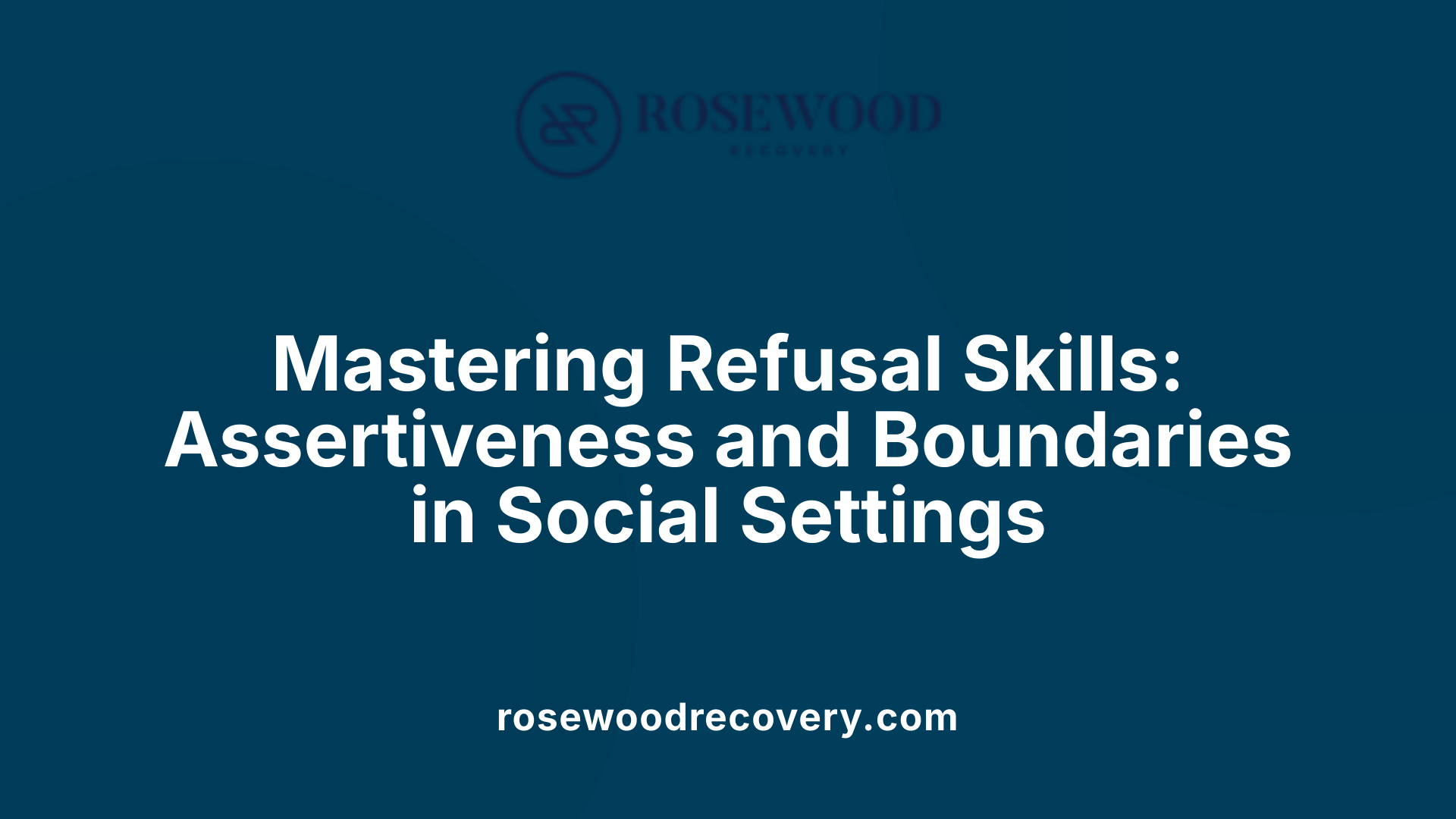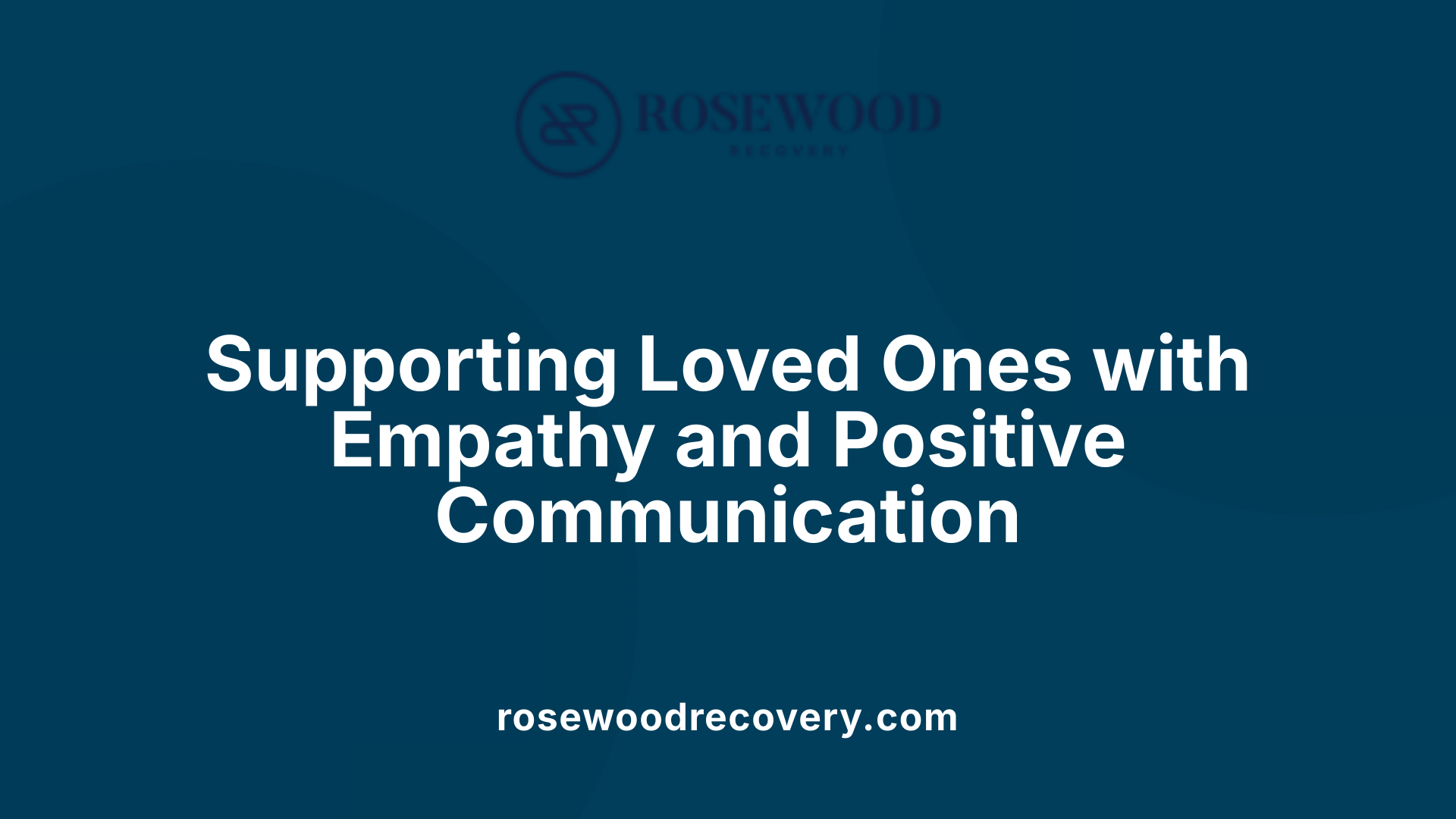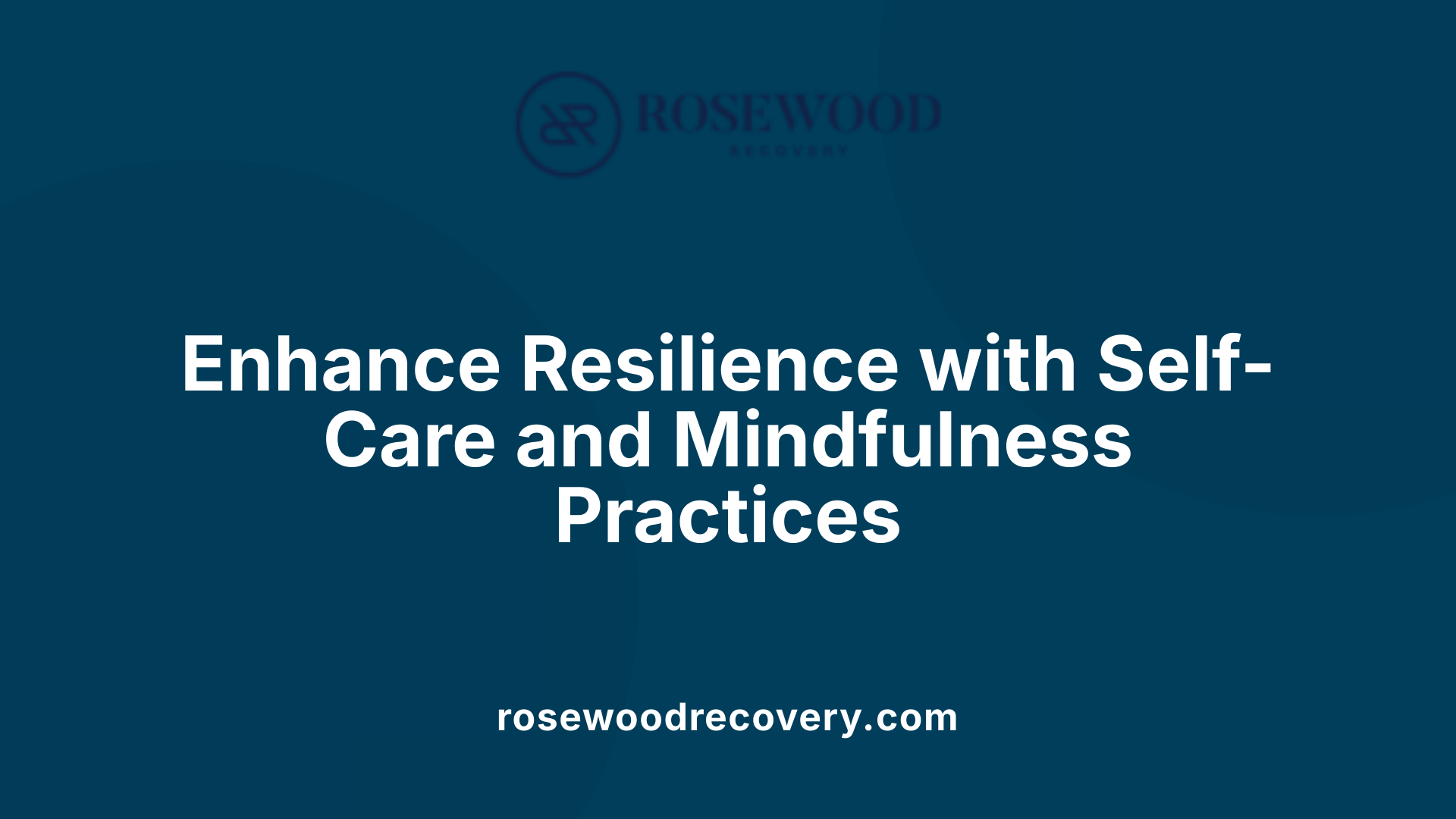Understanding the Importance of Managing Social Pressures
Embarking on outpatient rehab is a significant step towards recovery, but social pressures from friends, family, and social environments can pose challenges. Effectively managing these influences is crucial for maintaining sobriety and building a sustainable, healthy lifestyle. This article explores proven strategies and practical advice to help individuals handle social pressure during outpatient treatment.
Building a Robust Support System to Reinforce Recovery

What are some effective ways to cope with social pressure during recovery?
Successfully managing social pressure during recovery hinges on strategies that empower individuals to stay committed to their sobriety goals. A primary approach involves establishing clear boundaries and practicing assertive communication. This means confidently declining offers of substances or participation in risky behaviors by preparing responses in advance, such as saying, "I’m driving tonight," or, "I’m focusing on my health right now." Such prepared replies make it easier to reject presents without feeling awkward or pressured.
Bringing non-alcoholic drinks to social gatherings is another practical tactic. It signals to others that you are committed to sobriety and can serve as a visual cue that you’re not participating in alcohol consumption. Having a sober buddy accompany you can also provide emotional support, making it easier to refuse substances and navigate peer pressure.
Building a strong network of supportive friends, family, and sober companions offers encouragement and accountability. Support groups like Alcoholics Anonymous (AA), SMART Recovery, and other community resources are invaluable as they foster understanding and shared experiences.
Self-care practices play a vital role in resilience. Techniques such as mindfulness meditation, regular exercise, and engaging in hobbies or creative activities help manage stress and emotional triggers that could lead to relapse. Staying focused on personal recovery goals keeps motivation high and reinforces the importance of maintaining sobriety.
By combining assertiveness, support networks, and healthy coping strategies, individuals can better navigate social situations, resist peer pressure, and stay on their path to long-term recovery.
Strategic Social Planning: Creating Alcohol-Free Environments
How can I refine my social calendar to focus on sober activities?
Refining your social calendar is a vital step in maintaining sobriety. Start by intentionally seeking out and prioritizing events and gatherings that are alcohol-free or explicitly sober-friendly. Look for community activities, sports events, hobby clubs, or cultural festivals that do not promote alcohol consumption.
Instead of attending traditional drinking parties, consider hosting your own sober gatherings. Invite friends to participate in activities such as game nights, hiking trips, or themed dinners that do not revolve around alcohol. This way, you create an environment that supports your commitment to sobriety.
To help navigate social pressures, plan your schedule ahead of time by checking event details and preparing responses to offers of drinks or drugs. Adjusting your social calendar reduces exposure to high-risk environments and strengthens your commitment.
How can hosting sober gatherings help in staying committed?
Hosting your own sober events gives you control over the environment and the guest list. This allows for stress-free socialization where your boundaries are respected. It also demonstrates that fun and meaningful connections can happen without alcohol or substances.
Engaging friends and family in these activities fosters understanding and support, reinforcing your decision to stay sober. Plus, it provides a positive outlet for social interactions that promote health and well-being.
What strategies can I use to avoid triggers in social settings?
Avoiding triggers is crucial in preventing relapse. Recognize locations, people, or activities associated with past substance use and steer clear of these during your recovery phase.
Bring along a sober buddy who can support you and help handle peer pressure to indulge. If alcohol or drugs are involved, plan exit strategies such as having a pre-set departure time or an excuse ready, like needing to attend another commitment.
Carrying non-alcoholic drinks can help you feel included and prevent you from appearing conspicuous. Mindfulness and grounding techniques, like deep breathing or focusing on your goals, can calm nerves during social pressures.
Re-evaluating friendships that are dismissive or unsupportive and seeking new, sober-minded social circles can also significantly impact your recovery journey. Remember, building a support network aligned with your sobriety goals offers strength when faced with social pressures.
Mastering the Art of Refusal: Assertiveness and Boundary-Setting

Prepared responses for peer pressure
To uphold sobriety, individuals should craft clear and concise responses to offers of substances. Statements like "I'm driving tonight" or "I'm focusing on my health" are effective and non-confrontational. Rehearsing these responses reduces hesitation and helps maintain confidence when faced with peer pressure. Having a few pre-set phrases ready before social events ensures quick and firm refusals, which can dissuade persistent persuasion.
Using assertive body language
Body language plays a pivotal role in demonstrating confidence and resolve. Making eye contact, standing upright, and speaking in a steady voice convey assertiveness. These non-verbal cues reinforce spoken refusals and discourage peers from continued pressure. Maintaining a calm yet firm demeanor signals your commitment to sobriety and affirms your boundaries.
Maintaining personal boundaries
Setting and communicating personal boundaries is vital for long-term recovery. Clearly expressing reasons for abstaining—such as personal health goals or past experiences—helps others understand and respect your choices. If someone dismisses your boundaries, it may be necessary to limit or re-evaluate the relationship. Consistent boundary enforcement fosters a supportive environment that aligns with your sobriety journey.
How can individuals maintain sobriety amidst social pressures and social obligations?
Individuals can navigate social pressures by cultivating a strong network of supportive friends and family who respect their sobriety. Practicing assertive communication, like confidently declining offers with prepared responses, keeps boundaries clear. Planning ahead for social activities—such as choosing sober-friendly events, bringing non-alcoholic drinks, or arranging for sober companions—reduces exposure to alcohol-rich environments.
Engaging in therapy and mindfulness techniques can build resilience against emotional triggers and stress. Developing coping strategies enables individuals to handle social obligations without compromising their recovery. Ultimately, staying self-aware, reaffirming personal goals, and maintaining honesty in communication create a robust foundation for overcoming social pressures and sustaining sobriety.
Avoiding Harmful Language and Supporting Loved Ones

What should you avoid saying to someone who is in rehab?
When supporting someone in rehab, it is crucial to choose words carefully to foster a positive and supportive environment. Avoid dismissive or invalidating comments like "I know what you're going through," "You'll never change," or "Why can't you just stop?" These phrases can make the individual feel misunderstood, ashamed, or blamed, which might hinder their recovery process.
Refrain from criticizing their discipline, threatening to cut ties, or expressing disbelief about their addiction. Such comments can increase emotional distress and reduce their motivation to recover. Additionally, avoid trivializing their struggles or suggesting addiction is simply a matter of willpower, as addiction is a complex and chronic condition that often requires professional treatment.
Instead, focus on empathetic, encouraging communication. Messages that validate their efforts, acknowledge their pain, and offer hope are much more beneficial. Simple statements like "I'm proud of you for taking this step" or "I'm here to support you" can boost their confidence and promote a positive outlook.
Supporting loved ones through recovery involves listening without judgment, respecting their boundaries, and offering reassurance that they are not alone. Educating yourself about addiction and recovery can also improve your communication and ability to provide meaningful support.
By avoiding harmful language and prioritizing supportive and positive interactions, you can help create a nurturing environment that encourages continued progress and healing.
Understanding Relapse and Developing a Long-Term Care Plan

What are the signs of relapse and how can they be managed?
Relapse doesn’t suddenly happen without warning; it typically follows a pattern that can be identified early. It often occurs in three stages: emotional relapse, mental relapse, and physical relapse.
In the emotional stage, individuals may feel overwhelmed, bottle up their emotions, isolate themselves from others, or neglect self-care routines. Recognizing these feelings is important because they are often the first warning signs that a slip might be coming.
The mental stage involves conflicting thoughts about sobriety. Cravings can intensify, and individuals might start to romanticize past drug or alcohol use, making it harder to stay committed.
Finally, physical relapse is the actual act of using substances again. This stage can be dangerous and requires immediate action.
To manage these signs, early intervention is crucial. Strategies include engaging in ongoing therapy, attending support groups like AA or SMART Recovery, and practicing stress relief techniques such as mindfulness or grounding exercises. When a relapse occurs, seeking professional help right away helps restore stability.
Re-engagement with treatment, whether through counseling or relapse prevention programs, supports recovery and reduces the risk of further use. Remember, relapse is often viewed as a setback rather than a failure, and with proper management, recovery can continue successfully.
Incorporating Self-Care and Mindfulness for Resilience

Stress reduction techniques
Maintaining sobriety can be challenging, especially when faced with social pressures and internal triggers like stress or anxiety. Implementing stress reduction methods such as deep breathing exercises, yoga, or engaging in hobbies can help manage these feelings. Regular physical activity, mindfulness practices, and ensuring adequate rest are also effective in lowering stress levels.
Role of mindfulness and meditation
Mindfulness and meditation play a crucial role in building emotional resilience. These practices help individuals stay present, reduce impulsivity, and manage cravings more effectively. By developing awareness of their thoughts and feelings, recovering individuals can better recognize triggers and respond calmly rather than react impulsively.
Building emotional resilience
Building emotional resilience involves developing healthy coping mechanisms and a positive mindset. Techniques like journaling, visualization, and progressive muscle relaxation can strengthen one's ability to handle setbacks. Support from therapy, support groups, and loved ones further reinforce resilience, helping individuals stay committed to their sobriety goals.
Integrating these self-care practices into daily routines not only supports mental health but also fosters a strong foundation for long-term recovery. Consistent efforts in stress management and mindfulness equip individuals with the tools needed to navigate social pressures confidently and sustain sobriety over time.
Empowering Yourself for Long-term Sobriety
Handling social pressure in outpatient rehab requires a combination of proactive planning, assertiveness, supportive relationships, and self-care. By establishing clear boundaries, strengthening support networks, and practicing mindfulness, recovering individuals can navigate social environments confidently. Remember, relapse is a part of the journey for many, but with resilience and the right strategies, long-term sobriety is within reach. Continued community engagement, therapy, and self-awareness are essential in maintaining the progress achieved during outpatient treatment. Empower yourself with these tools, and step confidently into a sober future.
References
- Overcoming Social Pressures to Drink Post-Recovery - Bold Health
- 5 Ways to Avoid Peer Pressure and Say No When Offered Drugs in ...
- 6 Tips for Managing Social Situations and Peer Pressure in Recovery
- Adjusting to life after rehab - Rehabs UK
- How to Handle Peer Pressure in Sobriety - Relief Recovery Center
- Chapter 5—Specialized Substance Abuse Treatment Programs - NCBI
- Addiction Relapse: Risk Factors, Coping & Treatment Options
- What to say to someone in rehab | Encouraging words for recovery




